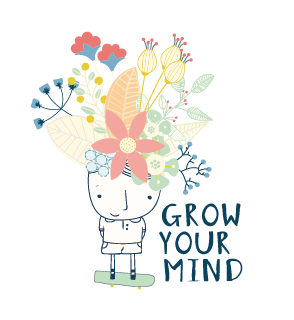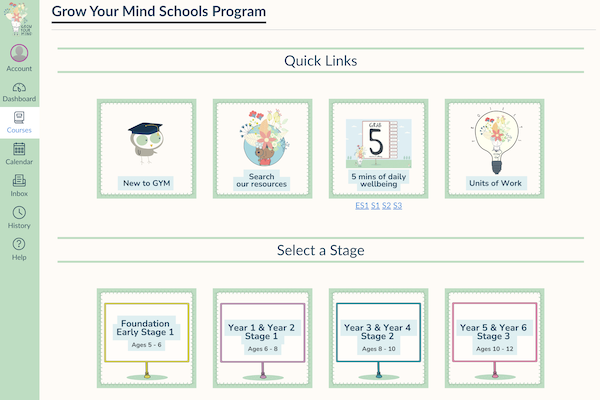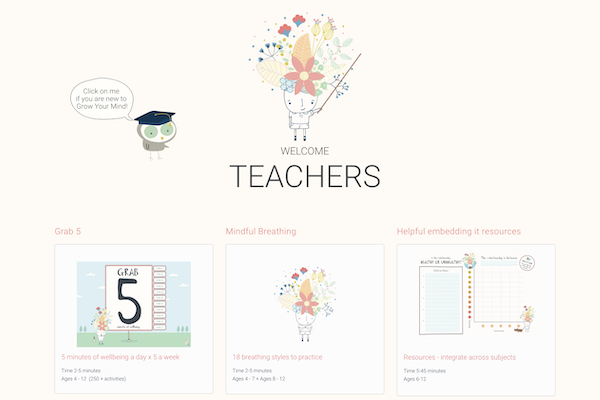How student wellbeing affects behaviours, performance and outcomes in the classroom.
Childhoods today are filled with milestones. There’s the physical ones like crawling and walking. The communication ones like talking and waving. And there’s the ones focused around big life events, like starting kindergarten and school.
From the moment a new baby is born their days are packed full of the learning that helps them meet these milestones. And year after year the experiences they have and things they learn stack together like building blocks forming a foundation of skills and information that they carry with them for life.
This process is quite literal, because our early experiences actually shape the brain and in turn, provide a foundation for future learning, behaviour and health.
So when we think about what things our children should learn about and what milestones they should meet throughout their childhoods, we need to make sure mental health is included.
We all want to see every child flourish when it comes to their mental health. Because when they do they’re open to all of the wonderful experiences life has to offer them. Including learning.
How student wellbeing impacts learning
When students aren’t feeling their best, chances are they’re not learning their best either.
In fact, an Australian survey of more than 6,000 families found that students with mental ill health scored lower on average in every test domain across every year level than students who did not have mental disorders. Suggesting mental health might have an even bigger impact on learning than we thought.
Poor mental health in students also causes higher stress levels for teachers. With students performing poorly at school, lashing out at others and withdrawing, teacher workload only increases. Teachers are the ones that need to follow up on all these issues in class. They need to provide all the required documentation as evidence of failure at school. They need to constantly be in discussions with parents, leadership and relevant professionals in order to try to support their students. In fact, poor student outcomes are directly correlated with increased teacher stress (Teaching and Teacher Education).
We need to focus on prevention
Research shows that half of all the mental health conditions we experience throughout the course of our lives will have started by age 14. So there’s a strong case for an increased focus on wellbeing and mental health in the classroom.
One of the most important things a teacher can do is teach their class about the importance of mental health and personal wellbeing. During your wellbeing lessons, try to incorporate strategies that students can implement on days when they feel stressed or overwhelmed. Things like teaching breathing techniques, providing resources explaining where to go if they need someone to talk to and explaining how to use positive affirmations can all help students. However, this is only on a small scale.
Yes, we can individually try to help our students in the classroom, however, the best way to tackle all of these issues in the long term is by implementing a whole-school approach to teaching about mental health and providing students with the resources they need to overcome their personal issues. A study in 2011 showed that having a whole-school approach to wellbeing and positive thinking generally improves overall results for all students. It actually improves student-teacher relationships as well.
Grow Your Mind has the resources your school needs to start supporting your students’ wellbeing. It’s a positive mental health program designed for teachers, by teachers, that’s all about enhancing resilience and wellbeing.
Teachers can also explicitly teach the program, embed it across literacy units or grab wellbeing activities that take less than 5 minutes when they need. These lessons bring together a range of wellbeing topics such as growth mindset, character strength education, gratitude, mindfulness, healthy relationships and emotional regulation and tie them back to basic neuroscience.
By giving them a language and narrative, Grow Your Mind is helping students understand how to take care of their mental health just like they would their physical health. And it’s working. 95% of students who do the program feel more confident to take care of their mental health.
But students aren’t the only ones to benefit. 90% of teachers also felt more confident to look after their mental health after attending a Grow Your Mind Teacher Wellbeing workshop.
Student wellbeing should be a priority in every classroom. Because with good mental health, students can achieve anything.


